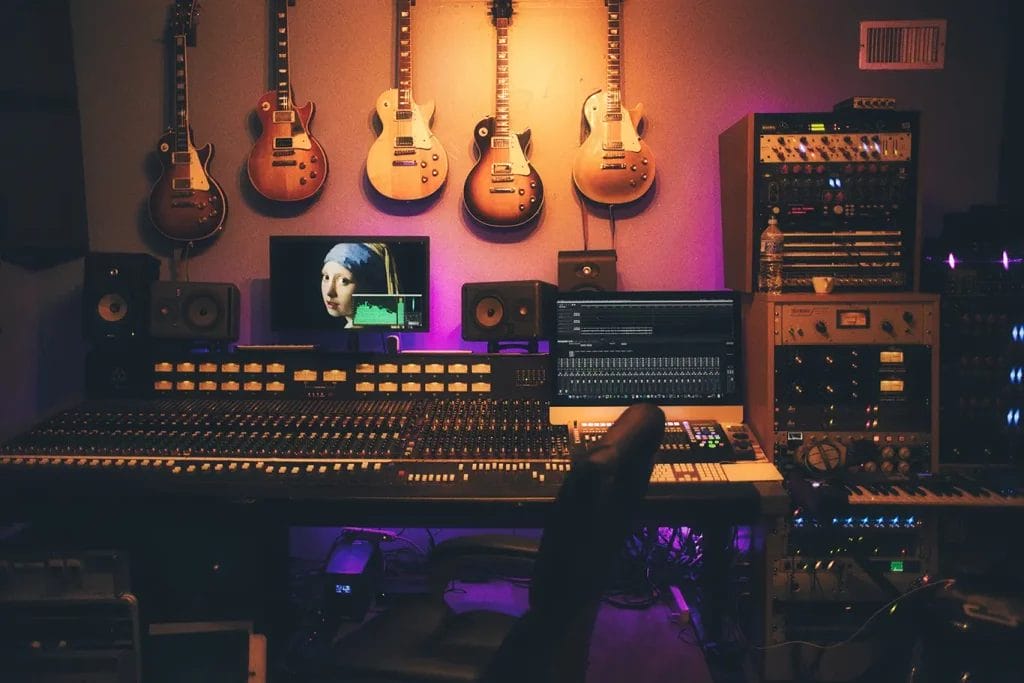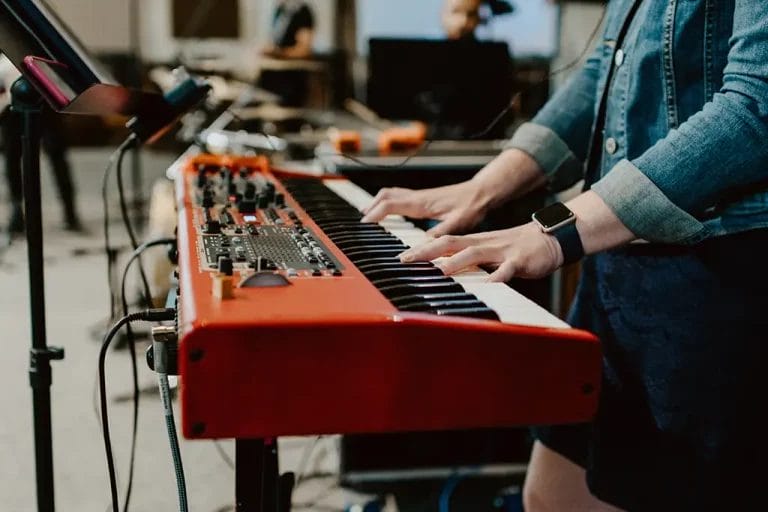There are many milestones that you as a musician hope to hit—writing your first song, playing your first gig, and recording your first demo, among many others. But one of the biggest milestones has to be your first studio recording session.
You know how important it is to have high-quality recordings of your music, whether you’re uploading tracks to streaming services, making a music portfolio, or sending them to club promoters in the hopes of booking a gig. While self-produced demos can do the trick for a while, having studio recordings takes your craft to a professional level.
So, what exactly does a studio session involve and what should you know before going into one? Read on to learn more about what recording in a studio entails, including what to look for in a studio, how to prepare yourself or your band, and why getting musicians liability insurance is a must before recording in a studio.
Booking Your Studio Recording Session
When it comes to booking a studio session, research is key. Look for studios that specialize in your genre and have a good reputation. Check out Google reviews for the studios in your area to see what other local musicians and bands have to say about their experience. Better yet, ask your friends and connections in the music scene if they can recommend any studios, especially those who make similar music to yours.
Before booking, you should also decide if you want to work with a sound engineer or a producer. Most studios should have both available, but they have different areas of expertise. A producer takes on more of a managerial or leadership role in the recording process, and they tend to be more concerned with the big picture and the aesthetics of the recording. On the flip side, sound engineers are the technical experts and tend to be more detail-oriented.
Find out who the producer and sound engineer are at each studio and see if you can listen to their previous work online. This will give you a better idea of whether their sound and artistic vision align with yours, and it may help you decide who you’d rather work with.
If you can, take the time to visit the studio in person. You’ll want to discuss availability, rates, and any additional services they offer. Additionally, by visiting in person you’ll get a better feel for how big or small the studio is, which is particularly important if you’re part of a band and will need multiple people and instruments inside the space at one time.
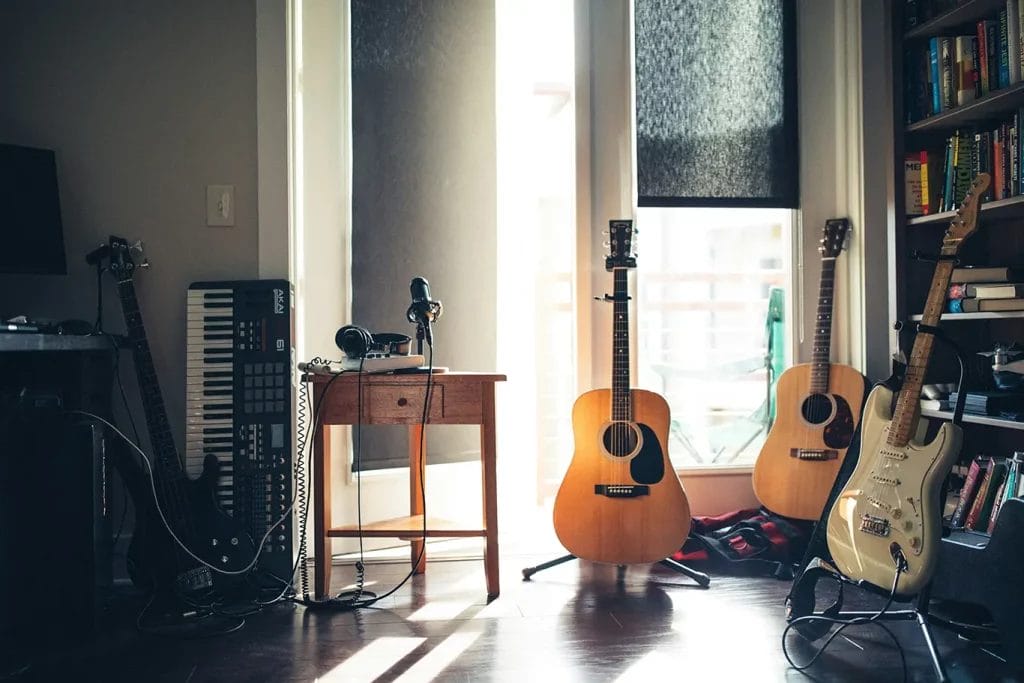
Budgeting for Recording in a Studio
The cost of a studio recording session can vary widely depending on factors such as:
- Location
- Studio size
- Equipment
- Engineer experience
- Time spent in the studio
In general, most recording studios will charge $30–$100 per hour, but for higher-end studios expect the starting hourly rate to be closer to $75. When you’re deciding on a studio to record at, compare their rates and what they have to offer. One studio may have a lower hourly rate but less equipment available for you to use compared to another location, for example.
Additionally, make sure you have a clear understanding of the studio’s pricing structure and any extra fees that may apply. For example, some studios charge extra for mixing and mastering, or you may need to pay additional fees to use session musicians.
The final cost of your session will depend on how many hours you book. To decide how much studio time you’ll need, consider how many songs you want to record as well as your budget. You may be tempted to record ten songs but realistically only have the budget for three.
Determining how much time it’ll take to record any given song is not an exact science, but the more instruments and/or vocals you need to record, the more time you’ll need. If you’re a solo artist just looking to record your vocals over a few instruments, you may be able to record two or three songs in the time it takes a full band to record one.
For a full band, it’s a good idea to allot 10–12 hours of recording time for one song. The last thing you want is to be overly ambitious and feel rushed to record multiple songs by the end of your session.
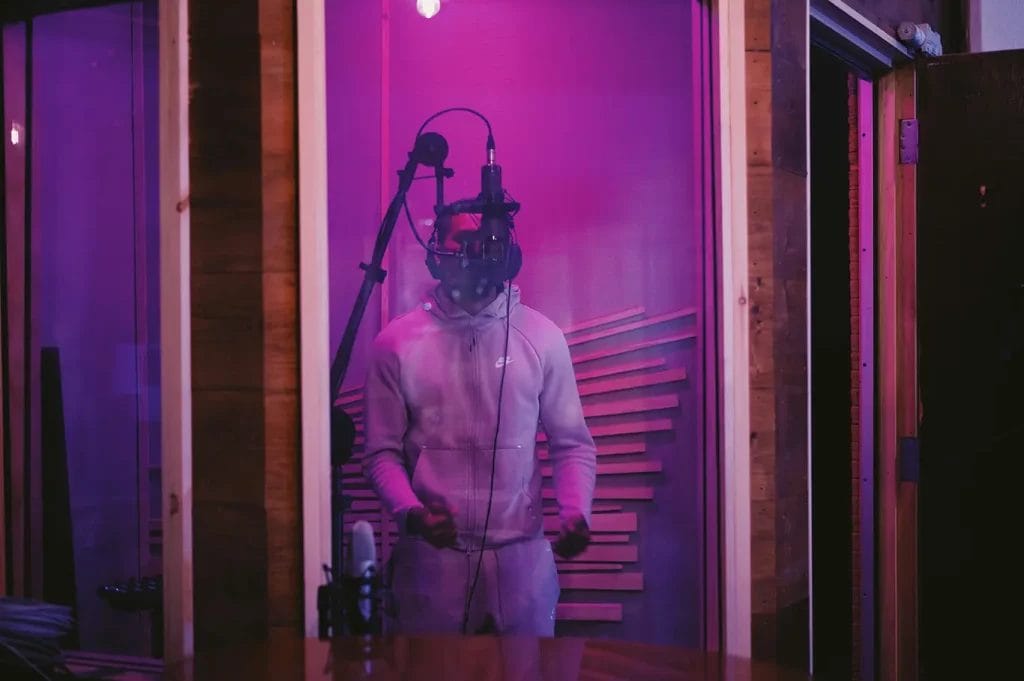
Preparing for Your Studio Session
Just like you would prepare for a gig, it’s important to prepare for a studio recording session. The most important thing you can do is to practice, practice, practice. Make sure to rehearse any of the songs you plan on recording before you go and get comfortable with them. Solidify the arrangement, key, and tempo of each of them so you aren’t wasting studio time deciding on these things.
Of course, you don’t want to practice too much right before a session. Singing for hours the day before you record might wear out your voice, so you want to strike a balance between rehearsing regularly and straining yourself.
Another great way to prep is to do a home demo session to help yourself get comfortable with recording. Even if you’ve already made demos of the songs you want to record in the studio, just the act of making new demos can help you get back into that recording groove. Try practicing with a metronome or click track as well, since many studios will have you play with a click track to ensure you and/or your band keep time while recording.
Once you’ve recorded some demos, listen to them and identify what you like and what you want to improve during your studio session. That way you can come prepared and tell the sound engineer or producer exactly what you’re looking for.
Additionally, you’ll want to make sure you have musicians insurance if you don’t already. This coverage is designed to protect you against common liability claims you might face as a result of accidents in the studio. It’s all too easy to accidentally damage the studio’s equipment (or your own), for example, and without musicians insurance you’ll be responsible for paying for repairs or replacements completely out of pocket. More on this later.
Last but not least, make sure to prep your gear before you head off to the studio. Change your guitar strings a couple of days before you record to give them some time to settle. Tune your instruments before you leave.
Bringing the Right Gear
Recording studios will always have gear on hand, but you don’t want to assume they’ll have something you need only to find out they don’t once you’re already there. Ask the sound engineer what they’ll have available for you to use so you know what you need to bring yourself.
You may be comfortable with your own gear, but don’t be afraid of using what the studio has to offer! Chances are, what they have available is very high quality and while you may not be used to it, it’ll sound much better on the recording.
In general, consider bringing the following along with you to your recording session:
- Your instruments
- Pedals with special effects you like to add to your songs
- Spare picks
- Extra drumsticks
- Guitar strings
- Tuners
Again, some of these items may be provided by the studio, so be sure to check first and minimize how much you’ll need to bring along with you. Any time you bring your equipment on the road, you run the risk of it being damaged or stolen, so being critical about what you actually need to bring can benefit you in the long run.
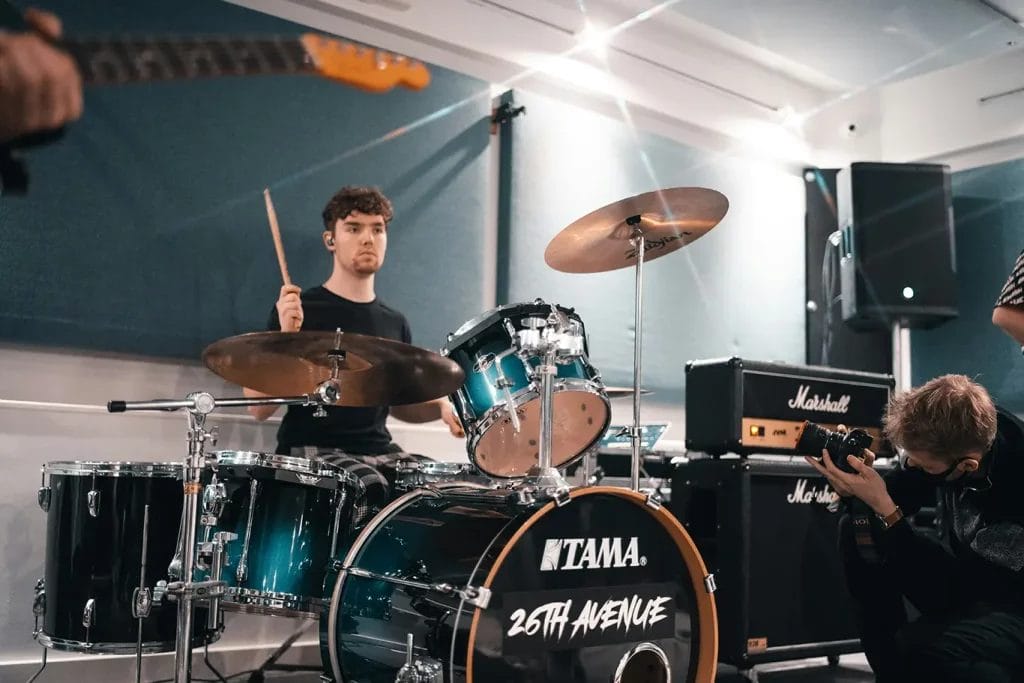
Making the Most of Your Studio Recording Time
When you step into the studio, time is precious. To get the most out of your experience, make sure you start by communicating your goals and expectations for the session to the sound engineer or producer. It’s important to be open to their suggestions and expertise while still maintaining your artistic vision and what you want to get out of your studio time.
Your goals might include the following:
- Marketing your band with high-quality recordings of your original songs
- Having professionally recorded tracks you can send to promoters to help you book gigs
- Recording and releasing an album or EP
Studio sessions can be nerve-wracking, especially if you’ve never had one before. Taking a few minutes at the start of the session to relax with some deep breathing exercises can help calm your nerves and get you into a better state of mind for recording. Similarly, make sure you’re taking breaks as needed throughout the session to avoid burnout and maintain focus.
Additionally, one of the most important things you can do to make the most of your studio time is to ask the sound engineer to make backups of everything you record. Equipment may fail or files may be corrupted, so you’ll want to make sure to have copies of the tracks you record. If you choose multi-track recording, get backups of each of the instruments or each group of instruments.
Protecting Your Finances and Gear With Insurance
Recording in a studio should be a fun, creatively fulfilling experience. That being said, accidents can still happen, making insurance crucial. When you’re at a studio recording session, you may run the risk of:
- Having your equipment stolen out of your car while you’re unloading at the studio.
- The studio engineer tripping over an amp you brought, falling and injuring themselves.
- You accidentally damage the studio’s property during your recording session and they hold you responsible for repairs
Some studios may even require you to carry liability insurance before you can book time with them. Insurance Canopy makes it easy for you to get the musicians insurance you need starting at $18.50 per month or $59 for a three-day event policy. If you’re in a band, we also offer band insurance for the same cost.
Beyond the recording studio, liability insurance can protect you from expensive claims at events like weddings, festivals, corporate events, and more.
With our easy online checkout process, you can get the right coverage for you or your band without ever needing to speak to an agent or leave your home. With a policy from Insurance Canopy, you can focus on making music instead of worrying about the threat of costly liability claims. Get your policy today!
Play On!
Getting yourself or your band in the studio can be a daunting prospect at first, but now that you know what to expect you’ll be prepared to book your first session and create some impressive professional recordings! The Insurance Canopy team wishes you the best of luck as you take this exciting new step in your music career.

